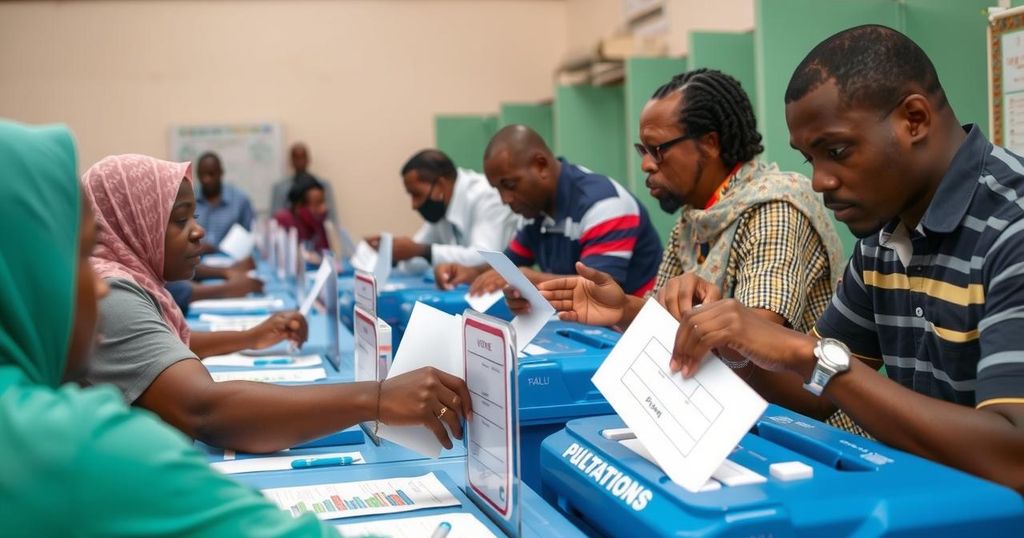Chad’s Elections Begin Amid Opposition Boycott and Public Apathy
Voting has begun in Chad with claims of a sham election by opposition parties. President Deby advocates for the elections as a move toward democracy; however, many citizens remain indifferent, expressing concerns over socio-economic issues and political corruption. The elections occur amid ongoing insurgent threats and following Chad’s military agreements with France.
Voting has commenced in Chad as President Mahamat Idriss Deby Itno promotes the elections as a pivotal moment in the nation’s transition to democracy. However, opposition parties have declared a boycott, terming the elections a mere façade intended to consolidate the ruling party’s authority. While military personnel and nomadic communities were encouraged to vote early on Saturday, the majority of the electorate will cast their ballots on Sunday for parliamentary, regional, and local council elections.
Reports indicate a prevailing sense of apathy among the populace, with many expressing skepticism about the potential for real change resulting from the elections. Citizens have voiced concerns regarding significant socio-economic issues, such as the rising cost of living and rampant corruption. The opposition, led by the Transformers party, insists on boycotting the polls, emphasizing the futility of participating in what they see as a predetermined outcome. Despite calls for a boycott, approximately 45% of military personnel and nomadic tribes members had reportedly voted by midday on Saturday.
The context for these elections is fraught, marked by recurrent insurgent activity in the Lake Chad area and Chad’s recent termination of its military agreement with France. Additionally, the government’s role in the ongoing Sudanese conflict has attracted scrutiny. Although President Deby has framed the elections as crucial for advancing democratic governance since he assumed power following his father’s lengthy dictatorship, critics maintain that the electoral process is compromised, favoring the ruling Patriotic Salvation Movement (MPS) party.
Chad’s political landscape has been turbulent, characterized by a prolonged authoritarian regime under Idriss Deby Itno, who held power for 30 years until his death in 2021. His son, Mahamat Idriss Deby Itno, took control amid a transitional government, promising reforms and democratic processes. The current elections are viewed as part of this transition; however, opposition parties are deeply skeptical, and many citizens anticipate minimal changes in governance. The backdrop of increasing violence from groups such as Boko Haram further complicates the electoral climate.
In conclusion, the ongoing elections in Chad reflect a profound tension between the ruling authority and opposition groups advocating for accountability and democratic integrity. With considerable public disillusionment, the elections may not yield the transformative change that many citizens hope for, despite being positioned as a significant step towards democracy. The contested nature of the electoral process highlights the challenges that Chad faces as it navigates its political future.
Original Source: www.aljazeera.com




Post Comment